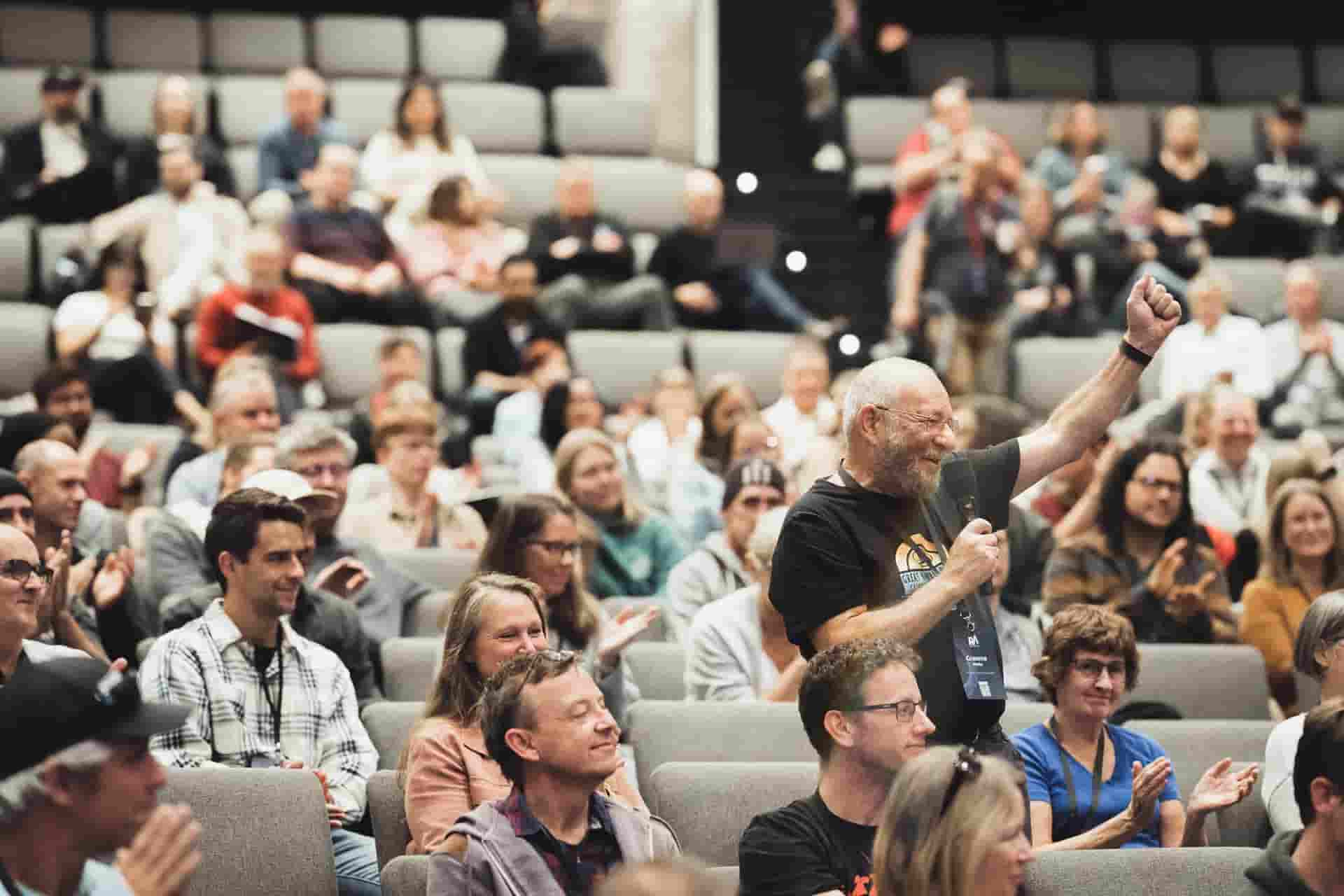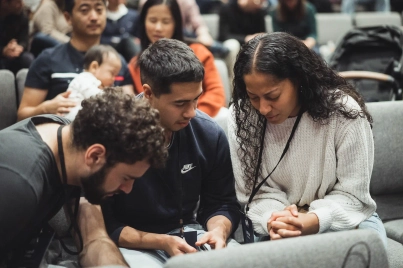The concept of a Gospel Community has been made popular by the Total Church book, and the Crowded House Network led by Tim Chester and Steve Timmis. It is becoming used by a number of churches around the world today, including us at Soma. What is a Gospel Community? It is a small community that seek to intentionally live out the Gospel together.
We have tried to institute the idea of the Gospel Community and while trying to learn from people like Chester and Timmis, people at the Soma church in the States and others in Australia who are trying to do the same thing, we are still on a steep learning curve as to how to do it the best.
Here are a few lessons that we have learned the hard way. Most of these lessons are quantum leaps, really small changes how we thinking that have a huge impact on what we do. I have also included a distilled lesson we learned and some resources we found to help us.
1. It’ Not An Event
We had the privilege of having a guy come and talk to us about what we needed to do, who knew the Sydney evangelical culture that we were coming from and had worked with the Crowded House network with Steve and Tim. One of the first quantum leaps was that we needed to know that a Gospel Community was not an event, it was a community. For Soma, most of our experience of Bible Study groups (growth groups, community groups, etc.) were that they were about the event starting at say 7:30 on a Wednesday night at… etc. etc. Sure, there might have been some interaction outside of that, but the event itself was the main thing.
A Gospel Community on the other hand gets together for ‘meeting at 7:30 on a Wednesday night at…’ only because they are a community. So if they need to change the time or meet twice a week to accommodate members, etc. they do that. Thinking more along the lines of ‘we are a community first’ changes the whole way you think about the group and the events.
Lesson: we need to help people to think more relationally than event based about Christian community.
For more:
Tim Chester and Steve Timmis, Total Church (Leicester: IVP, 2007).
http://theresurgence.com/series/total-church
2. Highly Relational
Because a Gospel Community is primarily a community it becomes highly relational. On the one hand this is great. It means that people get velcroed into the community quickly. But it also means another quantum leap of people re-thinking their lives. For instance my family now has Saturday as a community day. When we do something, we seek to invite people from our Gospel Community to come with us. We aim to have someone from our Gospel Community over for dinner through the week (which our kids love). It also means that people need to think about how they share their lives with each other.
But there is also a harder side to this. It means that when people let people down, like not turning up to a Bible discussion night, etc. it hurts them much more. One of our people said, When people didn’t turn up to a Bible study I was in I was ‘oh well’ but when people don’t turn up to a Gospel Community thing, that really hurts.” While people are closer to each other, they are also more able to hurt each other.
Lesson: prepare your people to be ready to live closer together, both in terms of the good things and the hurt it can bring.
For More:
Larry Osborne, Why Some Groups Jell and Some Groups Don’t Sticky Church Chapter 13 (Grand Rapids Mich. Zondervan, 2008).
3. Balancing Gospel and Community harder than it looks
But a Gospel Community is not just a community, it is a Gospel community. It is about living out the Gospel and reaching out with the Gospel. Balancing this idea of living out and reaching out looks easy on paper, but it can be hard.
On the one hand having a missional aspect to the community helps bond them together. One of our Gospel Communities has done some walk up evangelism and that has helped bind them together because of the gifts and limitations the activity has exposed. Helping each other has created intimacy.
On the other hand people can only connect with so many people. Trying to connect with my Christian brothers and sisters in my Gospel Community, my non-Christian friends, other people in my GC’ circle of friends can all be overwhelming.
Lesson: wisely giving people room to do mission and be responsible is important.
For more
Neil Cole, Organic Church: Growing Faith where Life Happens (San Francisco: Jossey-Bass, 2005).
I don’t agree with Cole on everything, but I do find his writing stimulating
4. Needs to have autonomy
Giving Gospel Communities room to do mission and be responsible means that they need to have autonomy. This is probably where church leaders are likely to freak out, and rightly so. Rather than thinking about small groups as a set of ‘boxes’ (for want of a better word) for people to be put into to be looked after, Gospel Communities should be thought of as large lifeboats heading out to take the Gospel to the world. A lifeboat captain’ tactics are largely determined not by the commodore of the fleet but rather by the people he is seeking to save.
Soma Gospel Communities are considered small church plants in their own right. A good Bible study leader is not necessarily a good Gospel Community leader. Because it needs to have autonomy the leader needs to be well trained in order to instill the DNA of the group.
Lesson: make sure that the leaders are well trained, well equipped and well deployed. But also make it clear what is up for the leader to make his own decisions about and what is not.
For More:
Ori Brafman and Rod Beckstrom, The Starfish and the Spider (New York: Portfolio, 2007).
This is a secular book on organic organizations and how small groups can have autonomy within a movement.
5. DO NOT SPLIT THEM, plant them
One of the important lessons we have learned about Gospel Communities being highly relational is the importance of not splitting them. On paper it looked good to have Gospel Communities grow and then when they are too big to split them into two. But there are two reasons we have learned not to do that.
The first is that you are asking people to be highly relational with each other and then break those relationships. After a while, and not a long while we have learned, people stop working hard at relationships with each other (‘After all, we’ll just be split up again!’).
The second reason is that as a Gospel Community grows and before it splits people are just working hard to connect with the people in them and have no room to relationally seek to reach out. So the community grows, losing it Gospel focus and the new groups then have to work hard at becoming Gospel focused again.
Lesson: Think proactively about how to plant Gospel Communities rather than wait for them to be ready to split.
For more:
Larry Osborne, Why dividing groups is a dumb idea Sticky Church Chapter 15 (Grand Rapids Mich. Zondervan, 2008).
I am sure there are more lessons that others have learned and I am also sure there are more that I will learn in the years to come. But these have been a few that would have saved me some pain, so I hope it will save you some if you are thinking of heading down this path.


